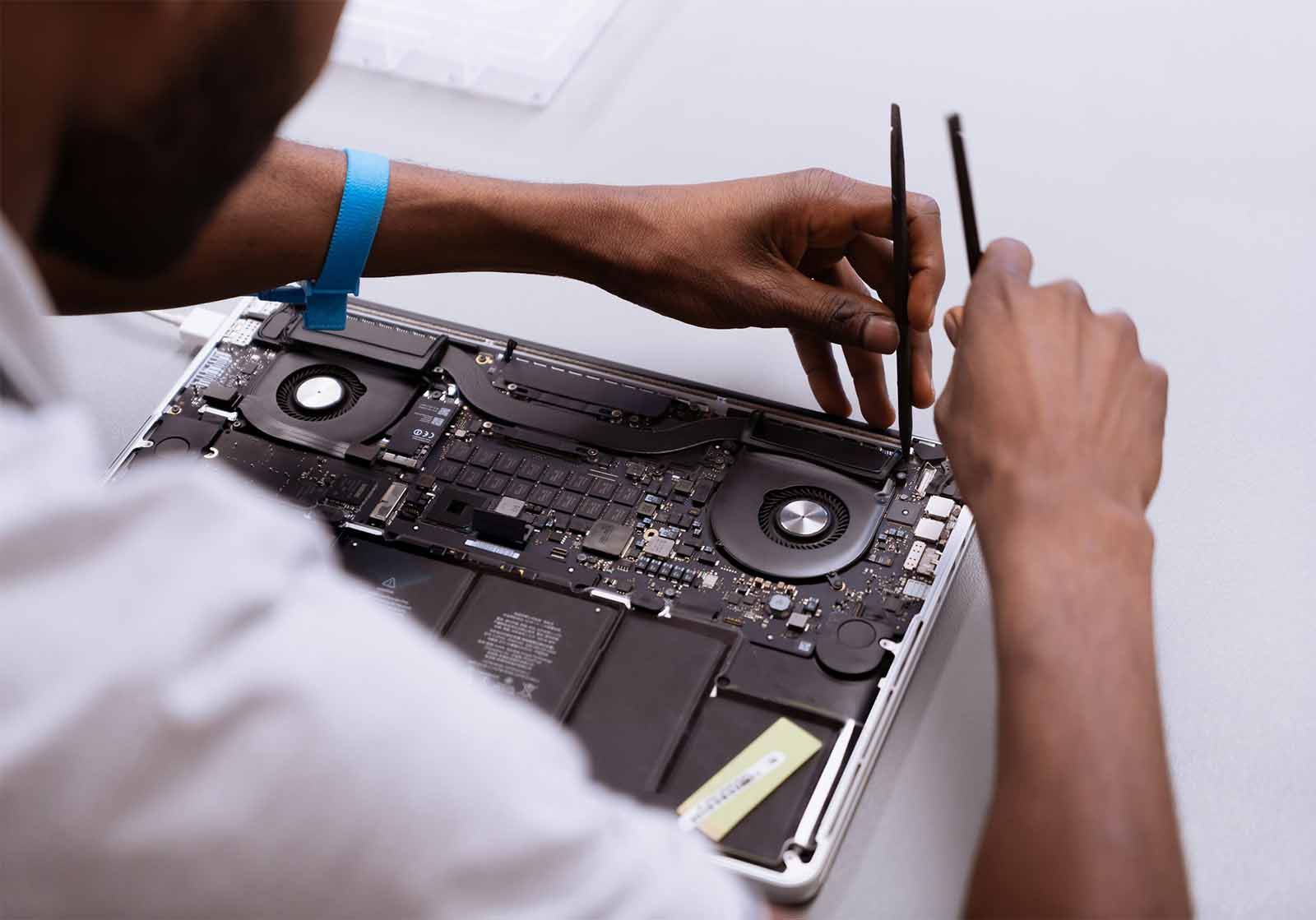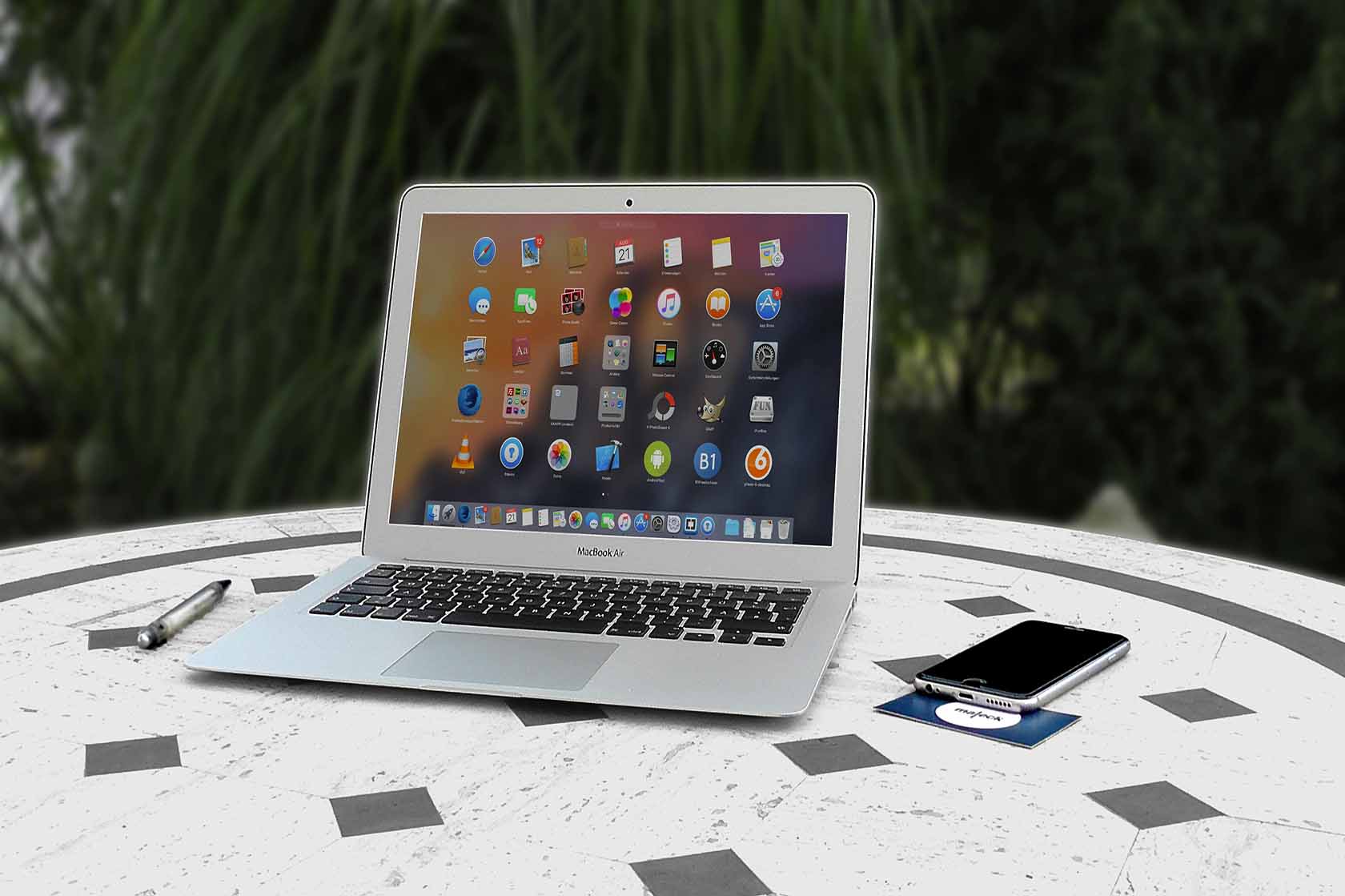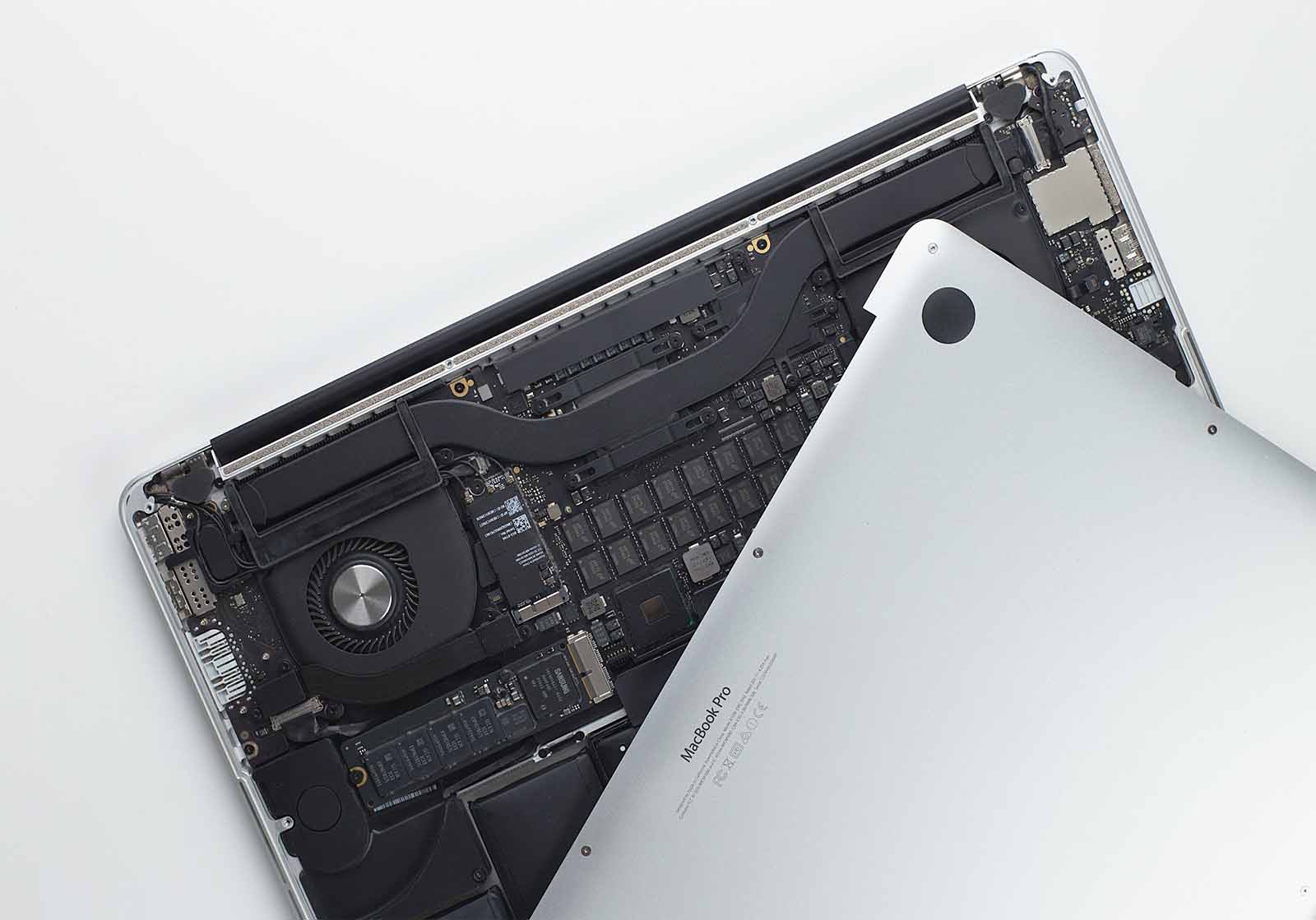MacBooks are celebrated for their sleek design and robust performance, but like any electronic device, they can experience issues over time. Here are six of the most common reasons why MacBooks may need repairs and how to address them.
- Battery Problems
Over time, MacBook batteries can degrade, resulting in shorter usage times or unexpected shutdowns. If you find that your battery isn’t holding a charge as it used to, it may be time for a replacement. You can check the battery’s health in System Preferences > Battery > Battery Health. If it’s below 80%, consider seeking a replacement.
- Overheating
MacBooks can overheat due to dust buildup in the fans, heavy resource usage, or environmental factors. Overheating can lead to performance throttling or, in extreme cases, hardware damage. To prevent overheating, keep your MacBook clean, use it on hard surfaces, and monitor resource-intensive applications using Activity Monitor.
- Keyboard Issues
The keyboard is another common point of failure. Users may experience unresponsive keys, sticky keys, or problems with the Touch Bar (on certain models). If your keyboard is malfunctioning, you might need cleaning or, in some cases, a full replacement. Apple offers a keyboard service program for affected models, so check if yours qualifies.
- Display Problems
Issues with the display can range from flickering screens to dead pixels or backlight failures. These problems can often be traced back to hardware malfunctions or loose connections. If your display is giving you trouble, it’s best to consult a professional to diagnose and repair the issue.
- Software Glitches
Software problems can manifest as slow performance, crashes, or application errors. These glitches can often be resolved through updates, reinstallations, or resets. Regularly updating macOS and your applications can help prevent many common software issues. If problems persist, a clean install might be necessary.
- Storage Issues
Running out of storage can lead to slow performance and system errors. If your MacBook is frequently displaying low storage warnings, it’s time to declutter. Remove unused applications, large files, or consider upgrading to a larger SSD if you’re consistently running low on space.
Conclusion
While MacBooks are designed for longevity, they can encounter a variety of issues that may require repairs. By being aware of these common problems and taking proactive measures, you can extend the life of your device and ensure optimal performance. Regular maintenance, timely updates, and seeking professional help when needed can keep your MacBook running smoothly for years to come.




